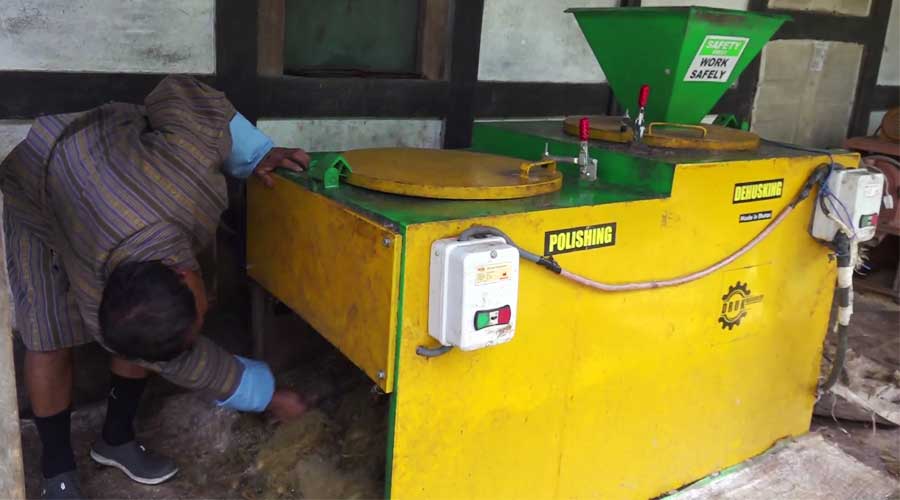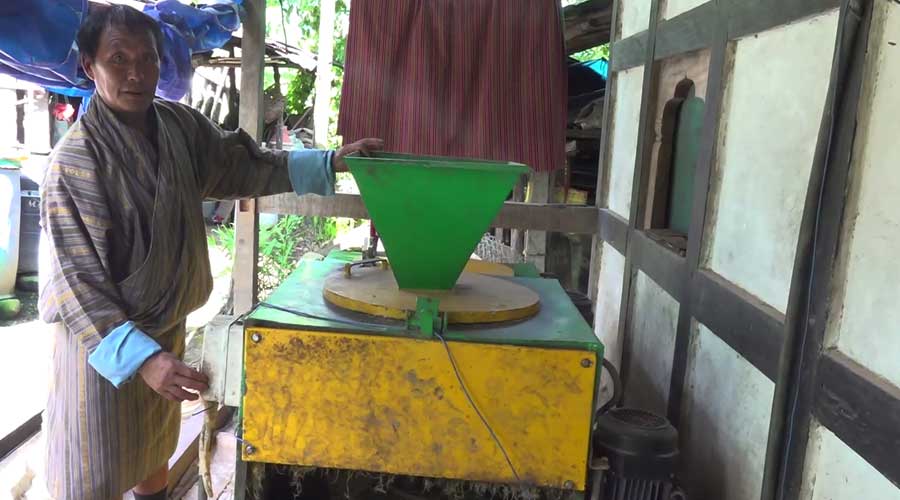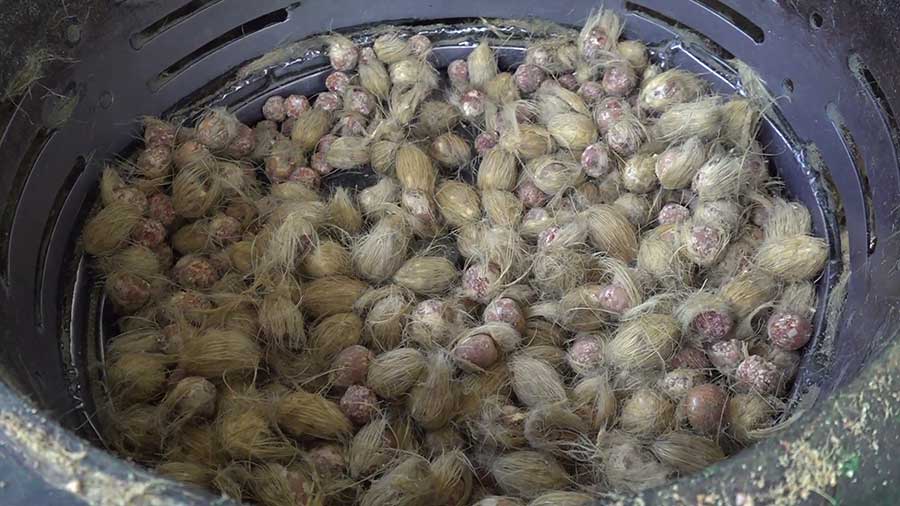
A lone betel nut dehusking unit in Samdrup Jongkhar is doing good business. Just two months into the business, the owner of the unit has already earned about Nu 70,000. If the trend continues, it could decrease the country’s import of betel nuts. Currently, Bhutan exports betel nuts to India during peak season and imports back paying almost double throughout the year.
 62-year-old Tshewang from Raling chiwog in Pemathang Gewog set up the betel nut dehusking machine taking a loan of Nu 500,000.
62-year-old Tshewang from Raling chiwog in Pemathang Gewog set up the betel nut dehusking machine taking a loan of Nu 500,000.
He bought the machine after he struggled to export betel nuts to India due to the COVID-19 situation.
Tshewang could not get the machine on time amid lockdowns and even about 2,000 pieces of his betel nut harvest got damaged. But the wait was worth it.
Today, most of the shopkeepers in the locality import unpeeled betel nuts from India and bring them to Tshewang’s de-husking unit. Tshewang charges Nu 50 for 80 pieces or a pon of betel nut. He sees about five customers every week.
“During lockdown due to the COVID-19 situation, we couldn’t sell betel nuts to India. The harvest got damaged. So, I decided to set up this machine thinking that it will benefit us,” said Tshewang.
 Within 10 to 15 minutes, the dehusking machine can peel 80 pieces of betel nut. For the upcoming betel season in March and April, Tshewang plans to buy betel nut from the farmers, dehusk and nut and sell them to the shopkeepers in the locality.
Within 10 to 15 minutes, the dehusking machine can peel 80 pieces of betel nut. For the upcoming betel season in March and April, Tshewang plans to buy betel nut from the farmers, dehusk and nut and sell them to the shopkeepers in the locality.
“Before, people sold all betel nut harvest to India. We only kept a bit of the harvest for self-consumption. Now, I think with a machine like this, I will not export any betel nut to India as I can sell it here after dehusking,” added Tshewang.
Shopkeepers today have to pay up to Nu 450 per pon while importing dehusked betel nut from India.
“If there is not much cost difference then I will sell it here but I will export to India if they offer better. It is always better to sell to whoever pays the good price,” said Sangay Drakpa, who owns a betel nut orchard in Pemathang Gewog.
“Now, I don’t have to bring it from India with a dehusking machine set up here. We can now buy betel nuts from here. Having such machines within the locality is benefiting people and more so shopkeepers like me,” added Tashi Zangmo, a shopkeeper in the gewog.
Betel nut is one of the main sources of income for many villagers of Phuntshothang, Pemathang, Samrang, and Langchenphu Gewogs in Samdrup Jongkhar. Last year, the district exported more than 500 metric tons of betel nut to India.
It is believed that the same betel nut is imported back to the country in the form of fermented areca nut or moza at a higher price.
As per the Bhutan Trade Statistics 2021, the country exported close to 7,000 tons of betel nut worth Nu 180 M to India. And the country imported over 1,000 tons which is worth more than Nu 205 M during the same period.
Kinley Wangchuk, Samdrup Jongkhar
Edited by Phub Gyem





